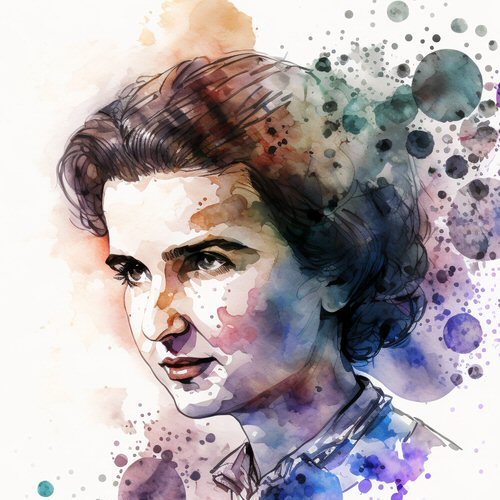 |
"Bias & Bigotry" |
||||
| More... |
Rosalind Franklin was born on July 25, 1920, in London, England, into an influential British Jewish family deeply involved in social and public works. Her father, Ellis Franklin, was a prominent merchant banker and teacher, and her mother, Muriel Waley Franklin, was active in charity work. From an early age, Franklin showed exceptional academic prowess, particularly in the sciences. She attended St. Paul's Girls' School, one of the few girls' schools in London that taught physics and chemistry. Later, she enrolled at Newnham College, Cambridge, where she earned a degree in natural sciences with a focus on physical chemistry. During the mid-20th century, when Franklin was making her mark, the field of science, particularly physical chemistry and crystallography, was predominantly male-dominated. In addition to the gender barriers, the period was marked by the aftermath of World War II, which had a profound impact on the scientific community in the UK, affecting funding, resources, and research directions. Despite these challenges, Franklin embarked on her research career in an environment that was not always supportive or encouraging to women. Her work initially involved the study of coals and carbon structures, which was critical for the development of wartime technologies. Franklin's most significant and renowned contributions came from her work on the molecular structures of DNA and RNA, which she pursued during her time at King's College London in the early 1950s. Utilizing X-ray diffraction techniques, she captured the critical photograph, known as Photo 51, which provided the first clear evidence of DNA's helical structure. This work was instrumental in the discovery of the double helix model by James Watson, Francis Crick, and Maurice Wilkins, who later received the Nobel Prize for this discovery. Franklin's contributions were crucial, yet her role was not fully recognized until after her death. Her pioneering work not only advanced the understanding of genetics but also laid the groundwork for numerous advances in biology and medicine. Despite facing significant obstacles due to her gender and the era's societal norms, Franklin's meticulous research and profound contributions to science continue to be celebrated, illustrating her remarkable resilience and dedication to her field. Reference: Wikipedia.org |
||||
|
|
